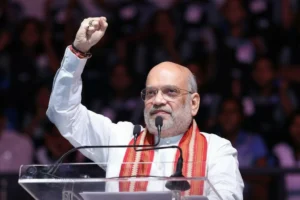
Gyanvapi-mosque
The hearing for the Kashi Vishwanath-Gyanvapi Mosque dispute case was scheduled for today, Monday, in the High Court. The Chief Justice’s bench of the High Court led the hearing. It’s noteworthy that the decision on this case was reserved on July 25, and today it was supposed to be announced. During the last hearing, the case was being heard in Justice Prakash Padia’s court. However, after listening to arguments from both sides today, the High Court has postponed the hearing for this case. The next hearing date has been set for September 12. It’s worth mentioning that the demand to restore the temple at the location where the Gyanvapi Mosque currently stands is a central point in this case.
Arguments Presented by Both Sides During the Hearing Today
The Allahabad High Court is simultaneously hearing five petitions related to the Gyanvapi dispute. During today’s hearing, the Muslim side presented the argument that the case has been heard for approximately 75 working days over the past several years. As a result, it may not be possible to conduct another hearing in this case. On the other hand, the Hindu side expressed the view that the decision should be expedited. Notably, the Hindu side did not oppose the decision to conduct another hearing.
The Lawsuit Filed Since 1991
Three petitions related to the Gyanvapi dispute were filed in the Varanasi court in 1991. Two of these petitions challenge the ASI (Archaeological Survey of India) survey order. The disputed area was demanded to be handed over to the Hindus in the 1991 case, along with permission for worship and rituals by them at the site. The High Court will decide whether the Varanasi court can hear this case or not based on this matter.
Denial of Stay on ASI Survey
Earlier, the Allahabad High Court had dismissed the petition by the Muslim side to halt the ASI survey in the Gyanvapi case. The court had stated that no one would be harmed by conducting this survey and, therefore, there was no basis to halt it.
To read more such news, download Bharat Express news apps





















